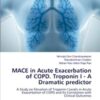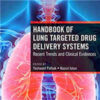Artificial Intelligence in Telemetry: What Clinicians Should Know
link.springer.comAdvances in artificial intelligence are beginning to unlock the potential of telemetry data to directly inform diagnosis and personalized treatment.
We can see hints of this in considering the case above. Is a second arrest on the horizon?
Retrospective studies have shown how machine learning might be used to make such predictions based on changes in continuous ECG signals.
Will she develop sepsis? Similar studies have suggested that machine learning analysis of HRV may serve as a harbinger of sepsis, even days in advance of its clinical onset.
Will hypotension arise as a result? Machine learning deployed across high-frequency vital signs data may well prove capable of providing some measure of advanced warning, and has been shown to reduce the duration of hypotension during non-cardiac surgery.
In the area of neuroprognostication, deep neural networks have been used with cEEG signals to accurately classify patients post-cardiac arrest, identifying those with little to no chance of a meaningful neurological recovery.

















